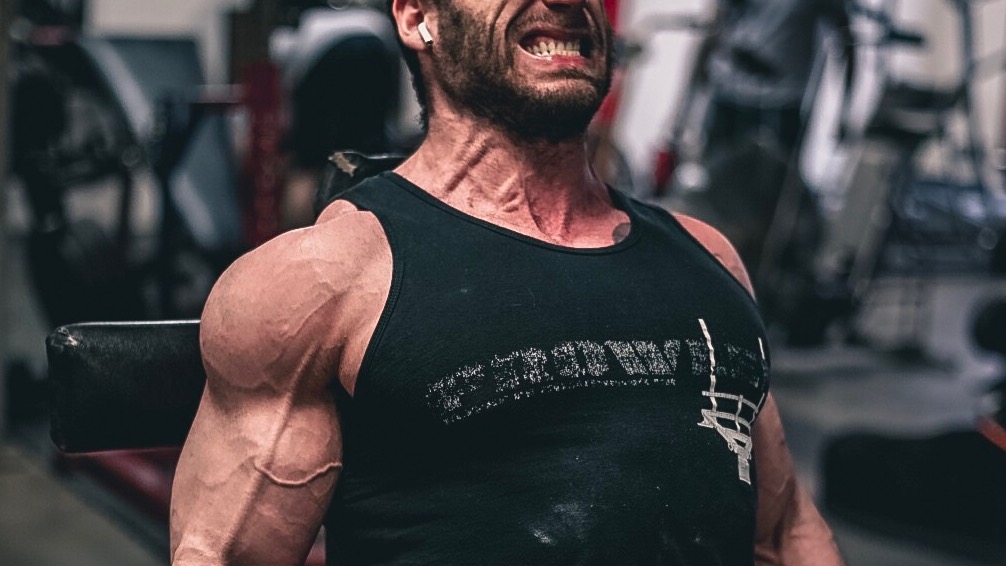
It might sound obvious, but coaching is a huge part of athletic success. When it comes to powerlifting, though, it’s not enough to be told what to do – you have to understand why you’re doing it if you want to understand your body and learn to progress over the long term. That’s one of the things I really harp on in my Unf*ck Your Program series.
Dave Tate explains this in his answer to the question of when to fire an online coach:
Only you know yourself best. Beginners and intermediate lifters don’t know this yet... but should be learning…. At some point in time, a lifter realizes this. They begin to use coaches as consultants. This allows them to use what they know to be true from their experiences and fill the gaps of what they don’t know with the coaches.
But once you realize it, the hard work is really just beginning. How do you make the transition? It’s complicated, but here are a few specific examples that might help.
Cut Back.
Many, many powerlifters come to the strength world from bodybuilding. And if you’ve ever even glanced through a muscle magazine, you know that traditional bodybuilding programs are loaded with volume. As a result, many coaches and lifters start out with the “more is better” mindset, and never learn to step away from that.
In truth, extreme amounts of volume are rarely necessary for powerlifting success. But if that’s what you’re used to, it can be very difficult to give up your four different accessory movements, hypertrophy work, and whatever else you feel is necessary for a productive session.
I think most coaches, when faced with an athlete who doesn’t want to cut back, tend to ask this question: “how will [insert exercise here] make you a better lifter?” And that’s a great question. But if you’re trying to learn to coach yourself, the better question is “is this exercise essential to success?” By identifying the essential, rather than the potentially beneficial, you force yourself to reflect on the key movements and practices that have brought you success in the past – and you’ll be better able to predict what will bring you success in the future.
Beef Up.
The opposite applies too, of course. If you’re coming from a very low-volume background, adding work might well be the stimulus you need to reach the next level of strength and development.
There’s two key ideas here. The first is that everything works, but nothing works forever. As your own coach, you need to constantly re-assess your programming and technique so that you can constantly improve. More important, however, is the idea that as your own coach, you must honestly assess your own biases. That’s the only way you can even begin to evaluate your progress objectively and prescribe training accordingly (which, ultimately, is a coach’s job).
Give Yourself a Break.
For the typical coach, that objective evaluation occurs in the weightroom. But one of the huge advantages of coaching yourself is that you have access to infinitely more information about yourself than does anyone else – information about your body, but also about your life in general.
And so you must understand that life happens! Training can’t and won’t always be your first priority, and, as your own coach, you have the freedom to adjust your programming to make space for all the other important things in your life without sacrificing progress. I’m not saying you should schedule short training sessions to make time for two hours of Scrubs reruns every night. I’m saying that when serious challenges arise in your life – things like illness, injury, work stress, relationship stress – you should know yourself well enough to adapt.
And don’t kid yourself: you must adapt. Stress is stress, and if you ignore that (or you’re just a stubborn MFer), chances are, you’re going to end up overreaching – or worse. If you don’t give yourself a break, you might find yourself forced to take one.
Get Your Head in the Game.
I’ve written extensively on the value of mental training, and the coach’s role in both the physical and mental preparation of his or her athletes. If you’re going to coach yourself, you need to take on that responsibility.
Fortunately, I’ve laid this one out for you already. Here are some great places to start:
Wrapping Up
Ultimately, your success as a lifter is going to come down to how well you understand your body, and how capable you are of adjusting your training accordingly. These ideas are just small pieces of a much bigger picture, and while I try to lay that out on YouTube channel, a lot of the learning process comes down to trial, error, and persistence. That's why discipline and dedication will take you so far in this sport.








